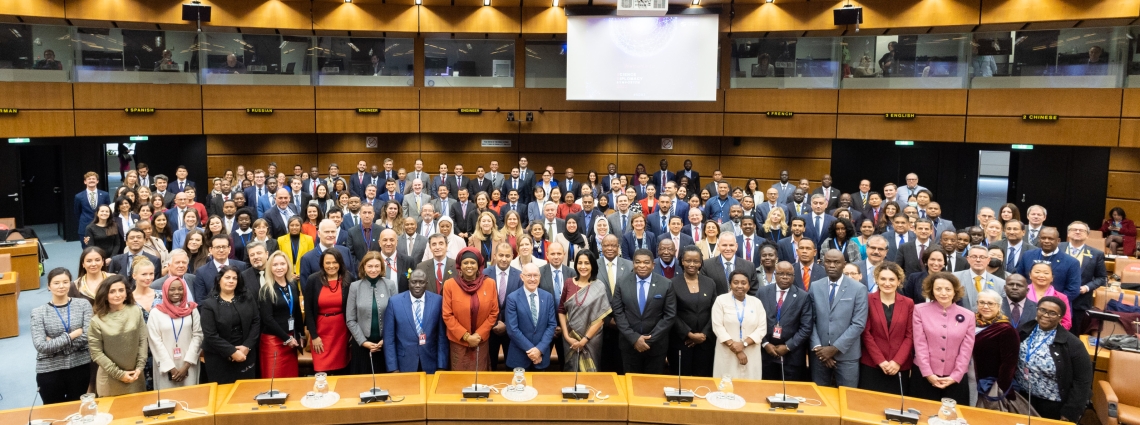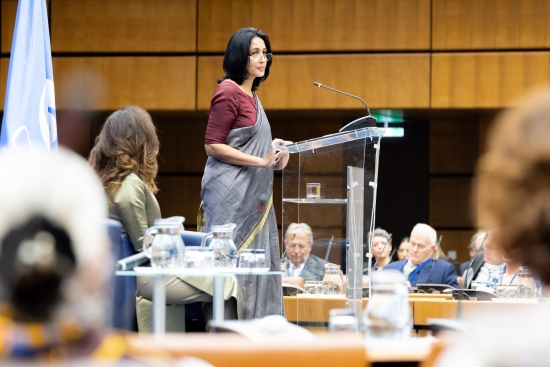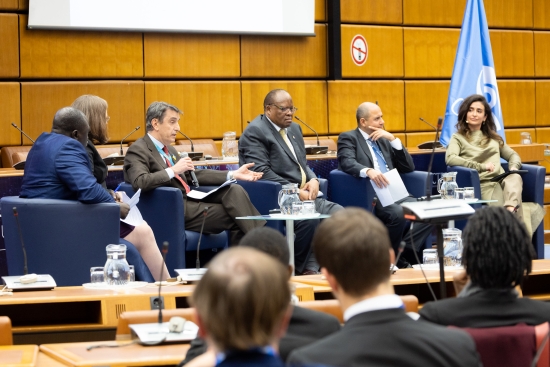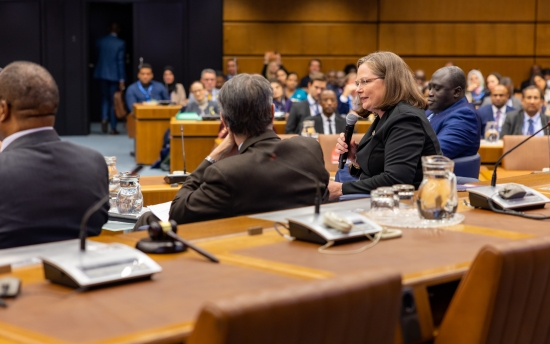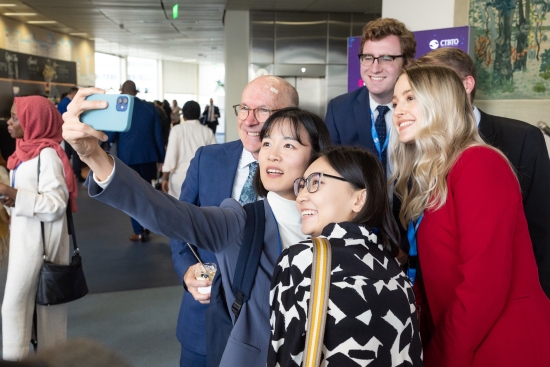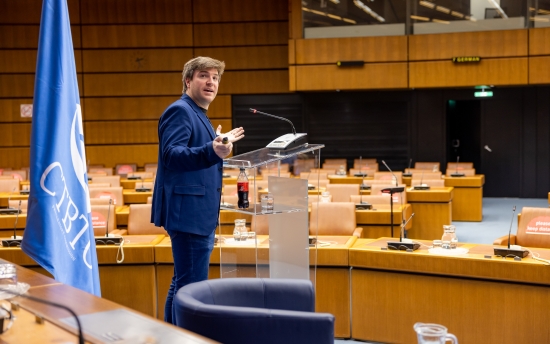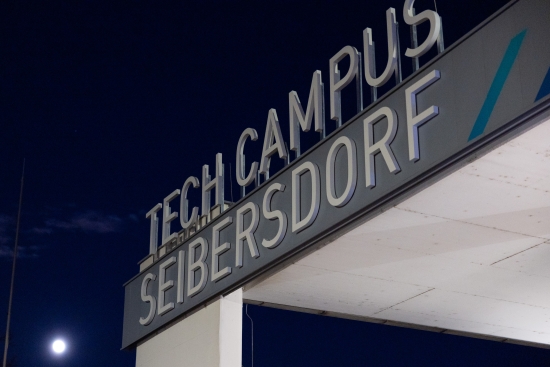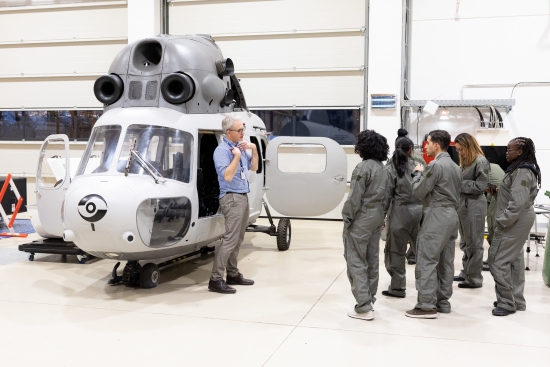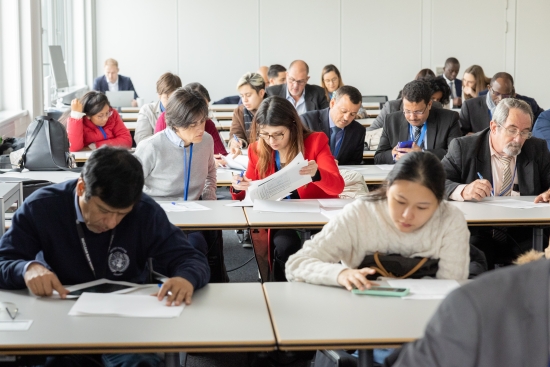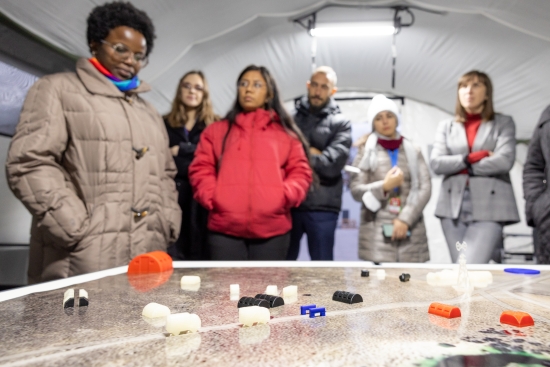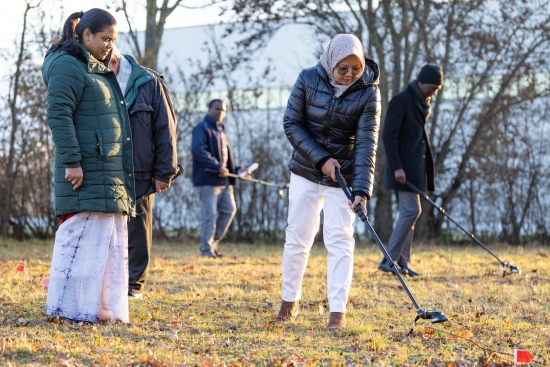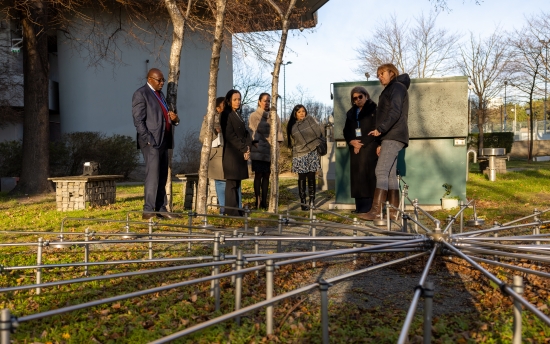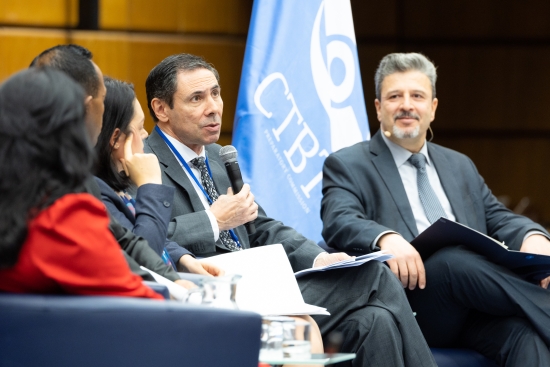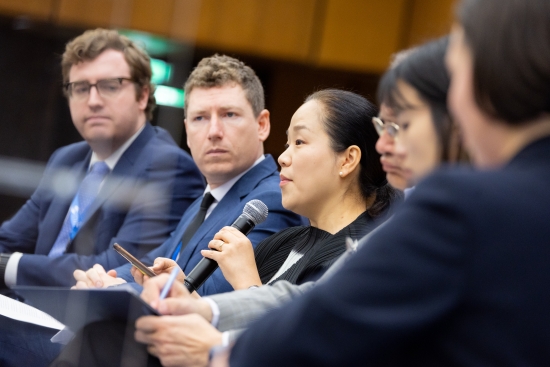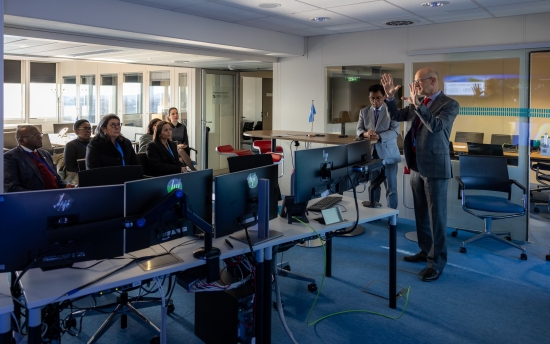CTBTO holds 3rd Science Diplomacy Symposium
60 Ambassadors and over 260 participants from the four corners of the globe gathered at the Vienna International Centre (VIC) for the 3rd edition of the CTBT Science Diplomacy Symposium (SDS).
The four-day event kicked off on 6 December with an address from the head of the Comprehensive Nuclear-Test-Ban Treaty Organization (CTBTO), Robert Floyd, who said, “There may have never been a more important SDS. When it comes to non-proliferation and disarmament, ominous dark clouds of concern are gathering, ongoing conflicts conjure fears of the return of nuclear brinkmanship, and another nuclear test may be on the horizon.”
The Executive Secretary added, “As we steam towards the new year, I welcome this opportunity to host you all here to exchange ideas, to be inspired by one another, and to consider solutions to the roadblocks we face. I believe that progress on the CTBT, at this critical juncture, can be further nurtured in the nexus between science and diplomacy.”
Aruni Wijewardane, the Foreign Secretary of Sri Lanka, also spoke at the session and in her remarks praised the six States that ratified the Treaty during its 25th anniversary year (The Gambia, Tuvalu, Dominica, Timor-Leste, Equatorial Guinea and São Tomé and Príncipe), universalising the CTBT in Southeast Asia and Latin America and the Caribbean.
Other high-level speakers who addressed symposium attendees included Csaba Kőrösi, President of the 77th session of the United Nations (UN) General Assembly, Martin Chungong, the Secretary-General of the Inter-Parliamentary Union (IPU), and Izumi Nakamitsu, the UN Under-Secretary-General and High Representative for Disarmament Affairs.
In a video message, USG Nakamitsu said, “We must remember that developments in science and technology can also be utilised in achieving a safer and more secure world, for example, to harness existing disarmament and arms control efforts.”
The high-level component of the symposium also included a panel discussion during which participants shared their views on how to advance the universalisation of the CTBT, which can only enter into force once signed and ratified by the 44 States listed in Annex 2 of the Treaty.
These States formally participated in the work of the 1996 session of the Conference on Disarmament and possessed nuclear power or research reactors at that time.
According to one of the panellists, Rapulane Sydney Molekane, Ambassador of South Africa to international organizations in Vienna and Article XIV co-coordinator, “Africa is a region that wants to promote global peace and security, and nuclear testing is a recipe for promoting conflicts.”
Article XIV is a special mechanism used to promote the CTBT’s entry into force. The Conference takes place biennially and is currently co-chaired by South Africa and Italy. Both countries ratified the Treaty in 1999 – three years after it opened for signature.
Ambassador Molekane was joined on the panel by Ambassador Alejandro Solano Ortiz, Permanent Representative of Costa Rica to the UN in Vienna, Ambassador Lamin Dibba, Permanent Representative of The Gambia to the UN, Ambassador Alessandro Cortese, Permanent Representative of Italy to the International Organizations in Vienna and Article XIV co-coordinator, and Ambassador Laura Holgate, Permanent Representative of the United States to the UN in Vienna.
Another highlight of the symposium was the CTBTO-EU side event Promoting Gender Equality and Empowerment for Early-Career Women in STEM. Two women from the CTBTO Youth Group (CYG) took the stage to speak about the CTBTO Mentoring Programme.
“This initiative gave me the opportunity to change the way I see myself as a woman working in STEM. I have learnt that strong female leaders are always there to help and are willing to provide tips for the younger generations,” said 27-year-old student Alinne Olvera Martínez from Mexico.
The young professionals were joined by Executive Secretary Floyd and Ambassador Stephan Klement, European Union (EU) Permanent Representative and Head of Delegation to the International Organizations in Vienna.
Other discussions included the political and legal aspects of the Treaty, as well as technical sessions on CTBTO’s International Monitoring System (IMS) and the International Data Centre (IDC).
Also on the agenda: a session on multilingualism as one of the core values of the Organization, and an engaging workshop by scientist and author David Robert Grimes on misinformation and how scientists, diplomats, and communicators can push back against dangerous fictions.
La Neice Collins, Senior Public Information Officer, who organised the talk, spoke about the significance of the session: “When a tidal wave of misinformation and falsehoods threaten to undermine the work we do – whether it be to end nuclear testing, defend human rights, alleviate hunger and poverty, or address global health pandemics – it chips away at the very foundation of global peace and security.”
Another popular feature of the third symposium was a visit to the CTBTO Technology Support and Training Centre (TeST Centre) in Seibersdorf in Lower Austria, some 40 kilometres from Vienna.
The multipurpose Centre is primarily used as a storage and maintenance facility for the equipment of the On-Site Inspection (OSI) Division. It also offers state-of-the-art training facilities and a media centre for CTBTO staff and the Organization’s technical partners.
During the Science Diplomacy Symposium week, participants at Seibersdorf took part in a tabletop exercise. They also had the opportunity to work with equipment used to detect signs of nuclear testing.
SDS closed with a statement from Floyd, who said, “As we enter the new year, we will continue to focus on universalisation and on entry into force of our precious Treaty. You have already heard about six ratifications this year… and I firmly believe that by the end of 2023, there will be less than a handful of non-Annex II States left to ratify… We will also continue to engage with Annex 2 States. I am hopeful that through dialogue we can chart a path forward together.”
The detailed agenda of the Symposium is available here and most sessions were live streamed and recorded and can be viewed here. Follow us on Twitter, Facebook, and LinkedIn (#SDS3)
14 Dec 2022
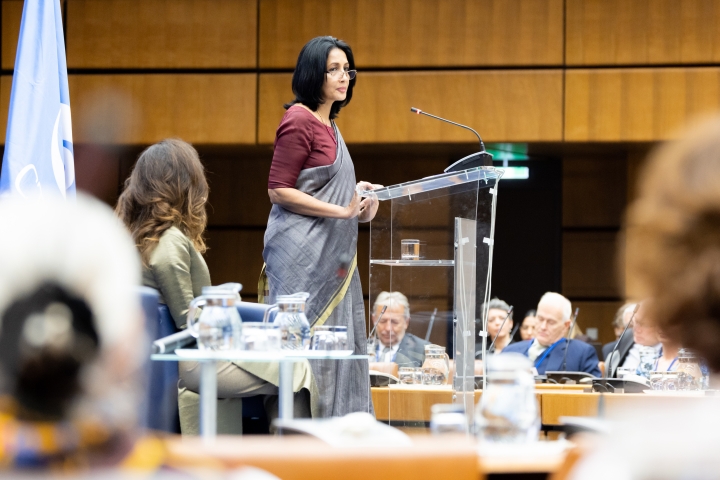
Aruni Wijewardane, the Foreign Secretary of Sri Lanka speaking at high-level opening of SDS
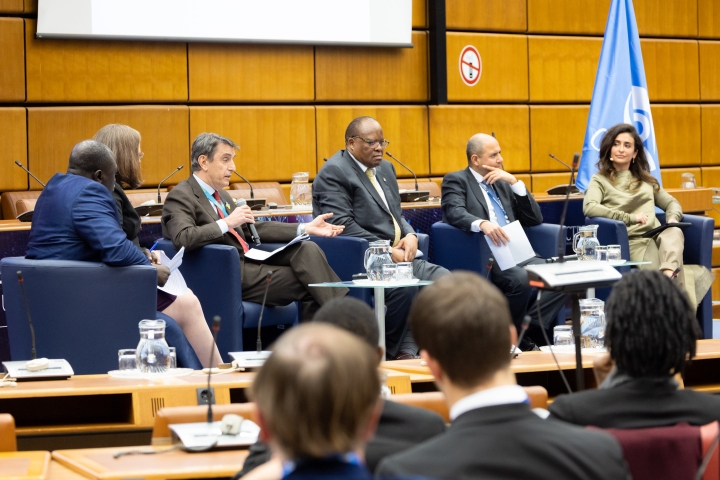
Science Diplomacy high-level panel discussion in progress
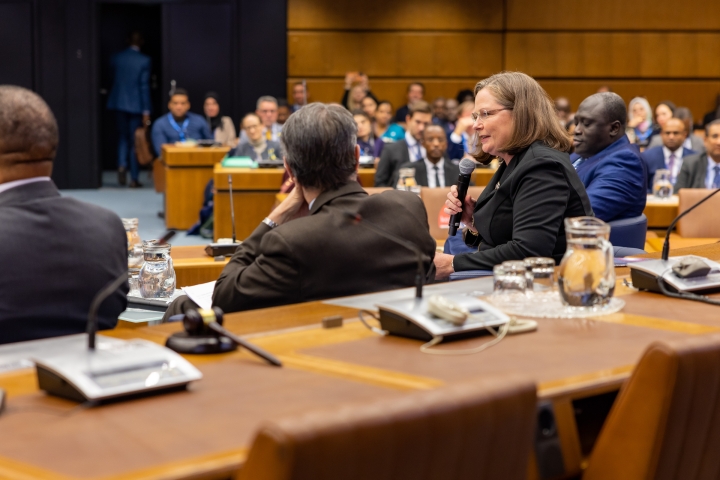
Laura Holgate, Ambassador of the United States to the CTBTO, speaking during panel discussion
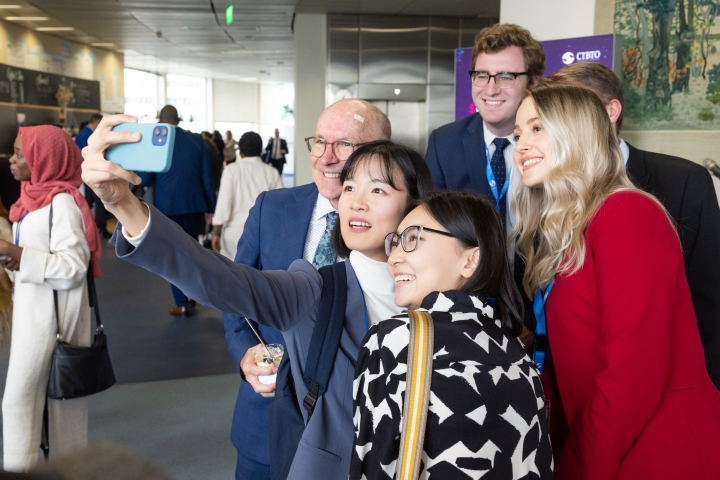
Executive Secretary Robert Floyd taking selfie with members of CTBTO Youth Group (CYG)
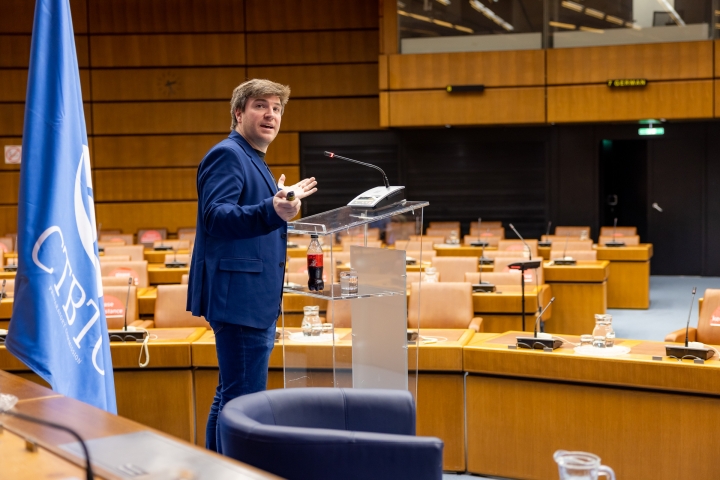
Workshop organised by Public Information Section on misinformation; presentation given by David Robert Grimes
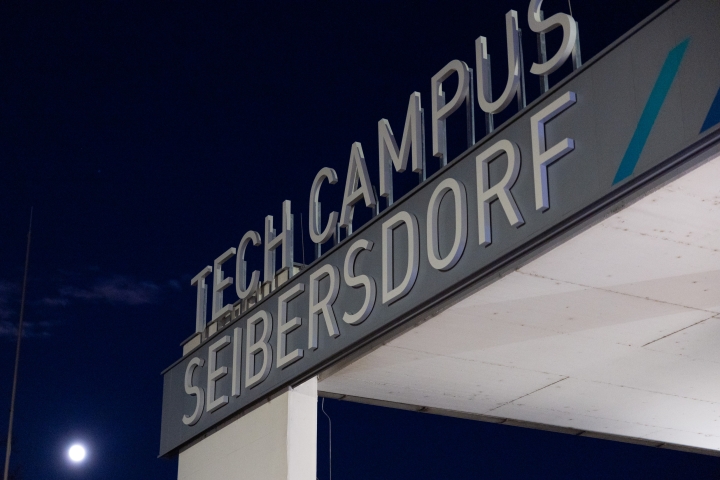
Exterior of CTBTO Technology Support and Training Centre (TeST Centre) in Seibersdorf, Lower Austria
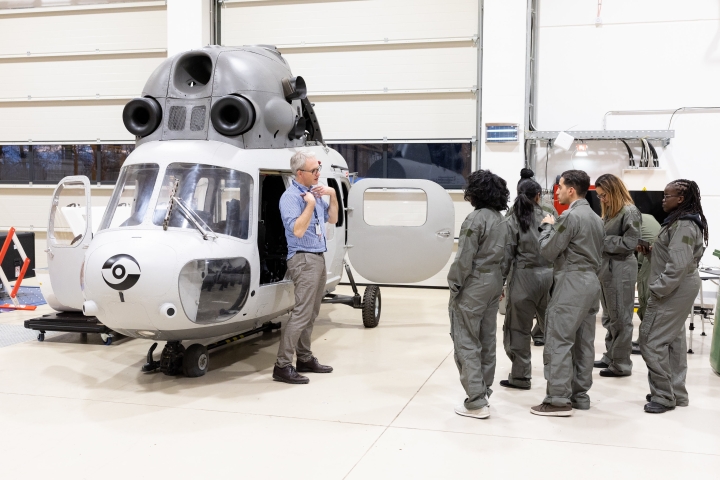
CYG members at TeST Centre
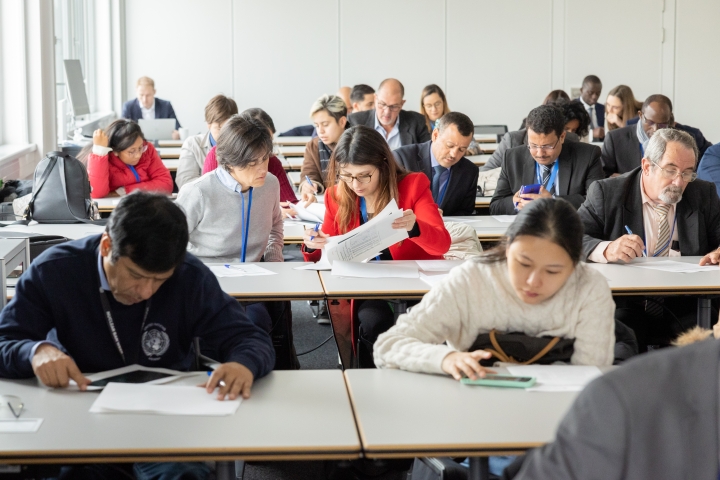
Tabletop exercise for Science Diplomacy Symposium participants
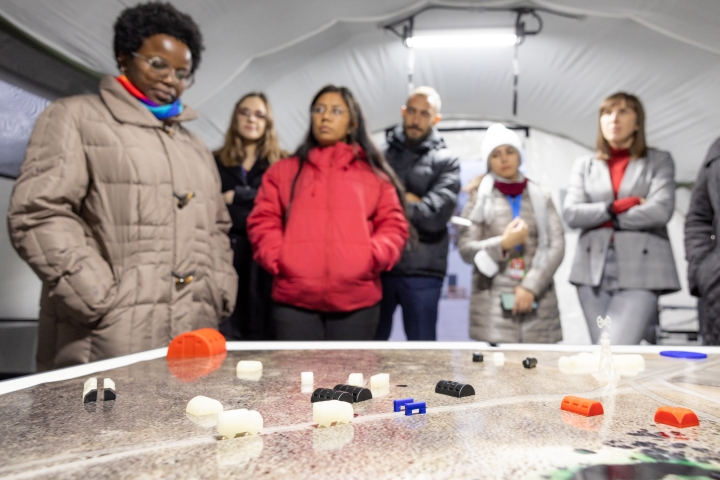
Participants looking at Integrated Field Exercise (IFE) diorama, On-Site Inspection Division (OSI)
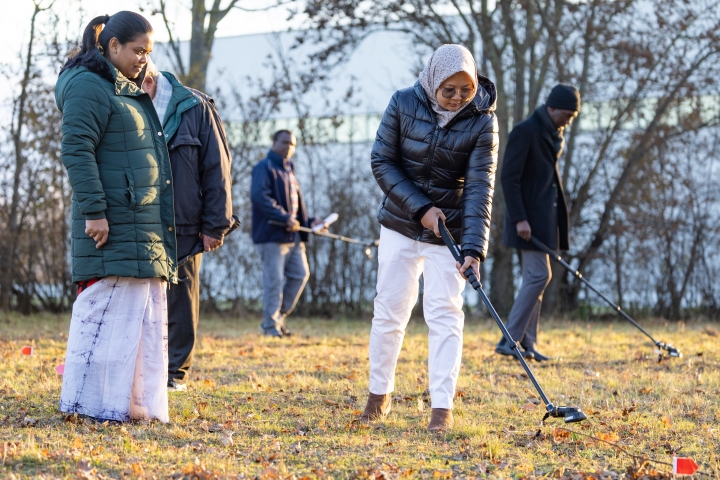
Participants working with equipment used to detect signs of nuclear testing
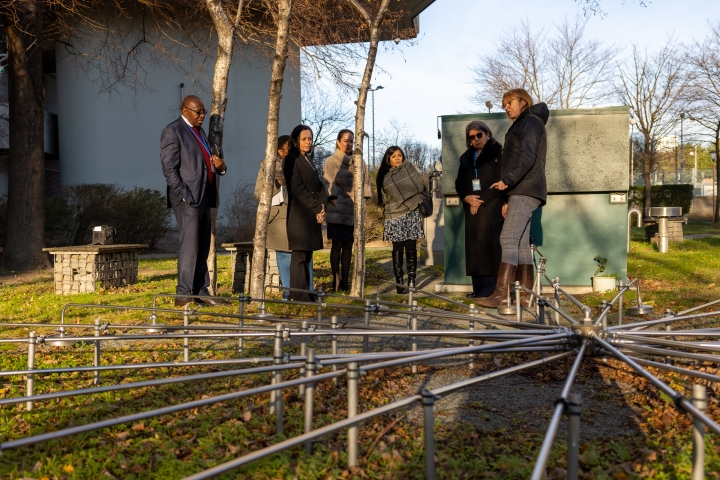
Tour of CTBTO’s technical facilities in Vienna
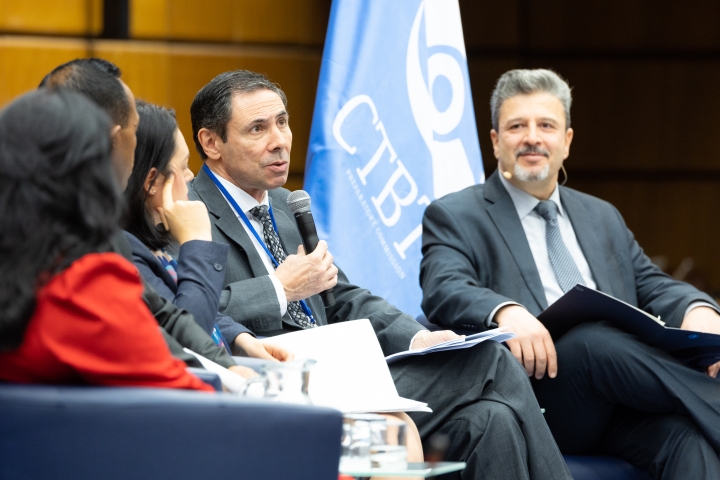
Panel on NDCs-for-All initiative

Panel discussion exploring the path towards a nuclear-test-free future
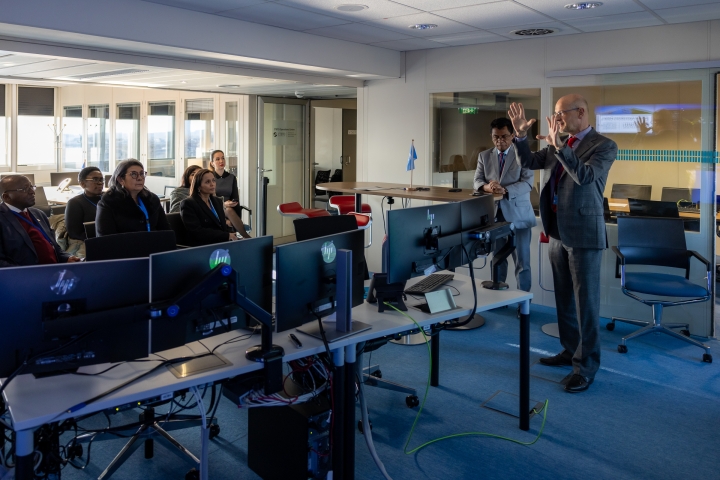
Presentation at Operations Centre of CTBTO’s International Data Centre (IDC)
